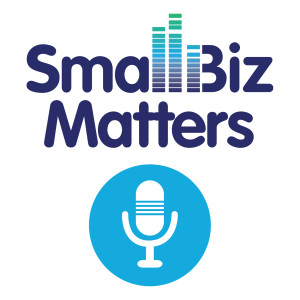
Small Biz Matters – a half hour program each week where you can work ON your business rather than IN it.
with Alexi Boyd from Boyd Office Management Services
Date: 7 November 2017
In the third interview in this series; Small Biz Matters brings back a local expert on Employment Law; Michelle Archer from Archer Law practice based in Hornsby. After the response from the last podcast I’m pleased to welcome back a true, local expert on the subject. So welcome to the show and thanks for sharing all of your knowledge with us this morning.
WHAT IS DISCRIMINATION?
Direct discrimination is where a person with a particular characteristic is treated less favourably than a person or persons without that characteristic.
Some of the specific characteristics or “grounds” covered by Federal Acts include:
• Race – Racial Discrimination Act 1975;
• Age – Age Discrimination Act 2004;
• Disability - Disability Discrimination Act 1992
• Sex (gender), sexual orientation, gender identity, intersex status, marital or relationship status, pregnancy or potential pregnancy, breastfeeding or family responsibilities – Sex Discrimination Act 1984
Also note section 351 of the Fair Work Act 2009:
Section 351 of the FWA states:
(1) An employer must not take adverse action against a person who is an employee, or prospective employee, of the employer because of the person's race, colour, sex, sexual orientation, age, physical or mental disability, marital status, family or carer's responsibilities, pregnancy, religion, political opinion, national extraction or social origin.
Indirect Discrimination can also happen when a practice or policy may on its fact appear non-discriminatory or neutral, but which may have a disproportionate detrimental effect on a person/persons with a particular characteristic.
WHAT IS HARASSMENT?
By far, the most common form of harassment is sexual harassment. Survey results in a 2014 guideline published by the Human Rights Commission, indicates that one in five (21%) of people (including both men and women) reported being sexually harassed in the workplace in the previous 5 years, that 79% of the harassers were men and almost one-quarter of the victims were men.
The SDA states that a person sexually harasses another person if:
“(a) the person makes an unwelcome sexual advance, or an unwelcome request for sexual favours, to the person harassed; or
(b) engages in other unwelcome conduct of a sexual nature in relation to the person harassed;
in circumstances in which a reasonable person, having regard to all the circumstances, would have anticipated the possibility that the person harassed would be offended, humiliated or intimidated.”
Note that there does not have to be repeated behaviour, one incident is enough to breach the section, however most cases involve repeated behaviour which often escalates over time. But whether one incident or many, employers are obliged to treat all allegations seriously.
The SDA provides some of the circumstances to consider as to whether sexual harassment has occurred including, but not limited to:
“(a) the sex, age, sexual orientation, gender identity, intersex status, marital or relationship status, religious belief, race, colour, or national or ethnic origin, of the person harassed;
(b) the relationship between the person harassed and the person who made the advance or request or who engaged in the conduct;
(c) any disability of the person harassed;
(d) any other relevant circumstance.”
Also note the definition of "conduct of a sexual nature" includes;
“making a statement of a sexual nature to a person, or in the presence of a person, whether the statement is made orally or in writing.”
WHAT IS BULLYING AT WORK?
Unlike sexual harassment bullying requires repeated unreasonable behaviour. The bullying jurisdiction under the Fair Work Act 2009, does not directly allow for any claims for compensation but does allow a worker to apply to the Fair Work Commission for orders for the bullying to stop. Before orders are made, the FWC will usually require that the person has first tried to resolve the situation internally and if unsuccessful, the FWC will conduct private conciliation.
The definition is found in section 789FD
(1) A worker is bullied at work if:
(a) while the worker is at work in a constitutionally-covered business:
(i) an individual; or
(ii) a group of individuals;
repeatedly behaves unreasonably towards the worker, or a group of workers of which the worker is a member; and
(b) that behaviour creates a risk to health and safety.
(2) To avoid doubt, subsection (1) does not apply to reasonable management action carried out in a reasonable manner.
WHY IT IS IMPORTANT TO AVOID DISCRIMINATION/HARASSMENT AND BULLYING IN THE WORKPLACE?
• The first and most important reason is that it can result in very real and long-lasting psychological damage in the person being harassed. It sends a message that that person is not valued and is incredibly destructive to confidence and trust of workers in their fellow workers and in their employer. There have even been incidents where young persons have committed suicide following repeated bullying at work.
• A workplace without these issues is a more inclusive and productive workplace and a better place for everyone to work.
• Protection for the employer against claims. Compensation in discrimination claims is increasing and presents a real liability risk. An employer can be sued if discrimination/harassment is taking place. If you as an employee are the perpetrator then you will not be very popular with your employer if they are sued because of your behaviour.
• Protection for the employee against sanction from the employer for misconduct. Engaging in discriminatory conduct can be grounds for dismissal without notice. This can have flow on effects for an employee’s entitlements, reputation and career.
• Protection for the employee against claims made directly against the employee. Both the employer and the employee can be sued for sexual harassment. Damages for discrimination matters are increasing and general damages over $100,000 have been awarded in the last few years. This is in addition to any economic loss that may be suffered.
EXAMPLES FROM THE CASES
• Compensation for sexual harassment
This is an important recent landmark case which has significantly increased general damages for discrimination/harassment cases.
The Applicant was a senior executive with Oracle. She was working with another executive named Mr Tucker. The Court accepted that Mr Tucker repeatedly sexually harassed Ms Richardson over a six month period and found he engaged in conduct on 11 separate occasions which involved sexually suggestive remarks in private and in public, text messages and calls. Ms Richardson repeatedly rebuffed him and the behaviour continued. Ms Richardson tried to informally complain but this was not successful and an investigation was launched. Mr Tucker apologised and was given counselling. Ms Richardson was removed from the projects she was working on, to remove her from Mr Tucker’s presence but believing she had been demoted, eventually resigned. The Court found that she had not been demoted but awarded $18,000 for psychological injuries suffered for the sexual harassment.
On appeal the Full Court of the Federal Court said that such an amount was out of step with community standards and significantly increased the award to $100,000. In this case the employer accepted vicarious liability and therefore was ordered to pay this amount although Mr Tucker was also personally sued. If the employer had not accepted that it was possible that Mr Tucker would have been ordered to pay this amount.
• Termination for racial/religious comments. Recent case.
A worker sent an email to a large group of persons in the workplace which suggested Islam was a religion of violence and which attached a slideshow which in the words of the FWC could:
“fairly be characterised as advancing a case through words and pictures that Islam is an aggressive and violent religion which constitutes a threat to the civilized world.”
The Employer terminated the employment of the worker. The worker made an unfair dismissal claim.
The sending of the email was found to be a valid reason for dismissal (although compensation was awarded to the worker based on other reasons)
Anderson v Thiess Pty Ltd [2015] FWCFB 478 (Ross J, Hatcher VP, Simpson C, 30 January 2015).
• Compensation for “sex romp prank”.
Two workers set up a room as if a “sex romp” had taken place and told their cleaner colleague that two other employees were having an affair and had used the room for that purpose. The Applicant believed that this had happened and he cleaned up the room.
Two days later the applicant was told by his colleagues that it was a prank and that the sex romp had not actually taken place. The Court accepted that the cleaner was deeply humiliated and distressed by the prank. The Court rejected claims by the workers that they only “wanted a laugh” and that the cleaner had accepted their “joke”.
The Court found that the intention was to humiliate the cleaner and that his “acceptance” of the joke was his way of coping with the humiliation. The Court ordered the employer AND the workers to pay the application more than $150,000 in compensation.
HOW TO AVOID DISCRIMINATORY CONDUCT
• Use common sense – don’t make jokes based on race, sex or age.
• Recognise that people who are offended or upset by discriminatory comments often don’t speak up due to embarrassment or fear. Don’t assume that because someone laughs or does not object they are not hurt or offended.
• If you see/hear behaviour that is not appropriate, say something. It is important that everyone work to create a culture which is inclusive and free from discrimination. It is often hard for the victim to speak up and make complaints so calling out behaviour when it occurs creates a better culture.
• Be careful at work functions especially if alcohol is being served. Work functions are notorious for inappropriate interactions and you can easily get into difficult territory when people’s inhibitions are compromised.
• Sexual content and emails – just don’t!! Don’t access inappropriate information at work, don’t send it to anyone and don’t forward anything you receive.
• Be careful with social media. There are cases where posts on social media even when done outside of work hours have been cause for dismissal and upheld by the FWC. Don’t be friends with people at work if you are going to vent about the boss or staff members!
More Episodes
 2017-05-02
2017-05-02
 19
19
 2017-04-11
2017-04-11
 29
29
 2017-04-04
2017-04-04
 24
24
 2017-03-14
2017-03-14
 28
28
 2017-02-21
2017-02-21
 34
34
 2017-02-14
2017-02-14
 51
51
Create your
podcast in
minutes
- Full-featured podcast site
- Unlimited storage and bandwidth
- Comprehensive podcast stats
- Distribute to Apple Podcasts, Spotify, and more
- Make money with your podcast
It is Free
- Privacy Policy
- Cookie Policy
- Terms of Use
- Consent Preferences
- Copyright © 2015-2024 Podbean.com






